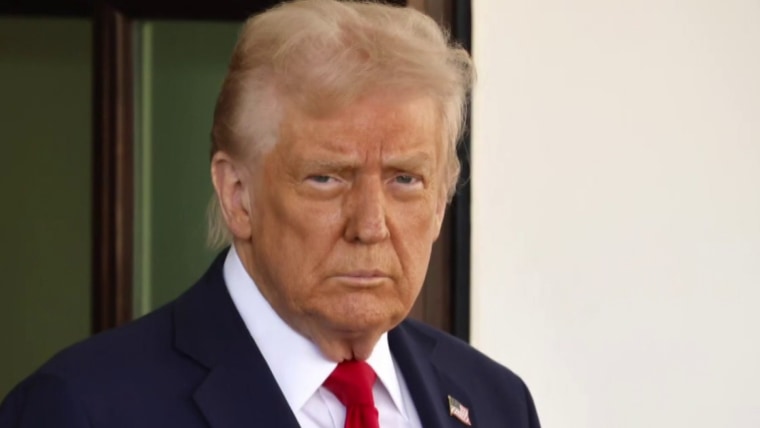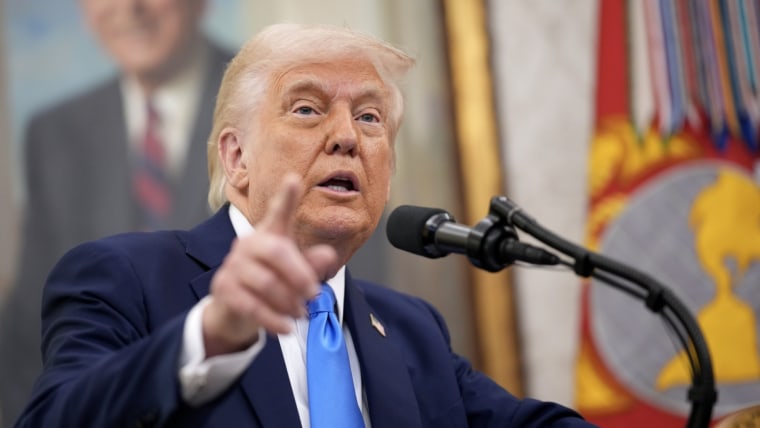The Trump administration’s recent executive actions targeting some of the country’s most prominent law firms should not be mistaken for routine political conflict. These moves signal a deeper strategy to weaken Democratic-leaning institutions and profoundly and permanently alter the balance of power in American democracy.
As political scientists who have studied the politics of the legal profession, we recognize Trump’s executive orders as part of a broader pattern. Like elite university professors and students, the legal profession, particularly at its highest levels, tilts to the left. Our research shows that lawyers are significantly more liberal than the general population. This ideological bent is especially pronounced at the nation’s top law schools — the very institutions that produce the attorneys at the firms targeted.
The firms Trump targeted first were not chosen randomly.
This isn’t just a reflection of educational polarization, in which higher levels of education increasingly correlate with left-leaning political views. Even compared with other highly educated professionals, such as doctors and business leaders, lawyers are among the most reliably left-leaning. That reality ironically makes “Big Law” — despite its traditional role defending big businesses and moneyed interests — a formidable adversary for an administration seemingly intent on dismantling opposition piece by piece.
And the firms Trump targeted first were not chosen randomly. These firms do not just employ some left-leaning lawyers; they are among the most liberal in the country. Our analysis finds that WilmerHale, Paul Weiss, Jenner & Block, and Perkins Coie — all firms that have been prominently targeted by Trump in recent weeks — rank in the most left-leaning quartile of top American law firms. WilmerHale, Jenner & Block, and Paul Weiss sit within the top 25 most liberal law firms nationwide.
These firms also don’t just lean left; they are Democratic power centers, deeply embedded in the intersection of law and politics. They exert influence in many ways: direct lobbying, fighting critical court battles over voting rights and providing campaign cash through donations and fundraising. Many federal judges and candidates, as well as staffers for Democratic presidential administrations, come from these firms. Perkins Coie, the first firm targeted by Trump, frequently represents Democratic Party interests.

But Trump’s targeting of law firms goes beyond mere partisan retribution. Policy is forged not only through legislation and regulation but also through litigation. Law firms are central actors in this, often acting as critical counterweights to government power. Their ability to bring complex cases, backed by resources and expertise — often deployed via pro bono efforts — makes them essential players.
By kneecapping some of the most effective legal adversaries on the left, Trump is attempting to tilt the scales in conservatives’ favor — not through victories in the courtroom, but through the outright elimination of the opposition.
Disturbingly, Trump’s pressure is yielding results.
Barring firms from obtaining security clearances, threatening government contracts, or restricting federal employee contact — key provisions in these executive orders — doesn’t just deprive law firms of clients; it cripples their ability to function effectively across numerous practice areas, potentially denying due process to numerous clients. The goal is clear: to sap these firms of their power, marginalize their influence and send a chilling message to any other legal entity contemplating a challenge to administration policy or actions.
Disturbingly, Trump’s pressure is yielding results. Though firms like Jenner & Block, WilmerHale and Perkins Coie are challenging these orders in court, others have bent the knee. The settlements by Paul Weiss and Skadden Arps — in which they agreed to provide millions in legal services for causes favored by the administration — have emboldened the president and his administration to continue their campaign of intimidation.
We have criticized the legal profession in the past for its resistance to public oversight and its outsize political influence. In turn the bar has continued to claim a unique position for lawyers as guardians of democracy. Having carved out and defended this privileged position — deserved or not — the legal establishment now faces a defining moment. Lawyers cannot credibly claim a special role in protecting democratic norms while simultaneously compromising with those undermining them.

The stakes for the legal profession are high. The more firms respond in isolation, hoping to avoid Trump’s ire, the easier it will be for Trump to pick them off one by one. An independent, robust and liberal-leaning legal profession presents too much of a risk to the Trump administration. The entire profession — Big Law, the legal academy and bar associations — must present a unified front to resist these encroachments, something we have begun seeing with the news that more than 500 firms have voiced support to Perkins Coie in its legal fight against the administration. Bar associations, which set ethical rules that lawyers must follow, will be particularly important in mandating that law firms not be punished for the clients they represent. With individual partners nervous about losing business, it is crucial that firms, law schools and bar associations be more vocal.
Because if they don’t, they may not only lose the battle for their profession, but we may lose a critical pillar of how U.S. democracy operates.
